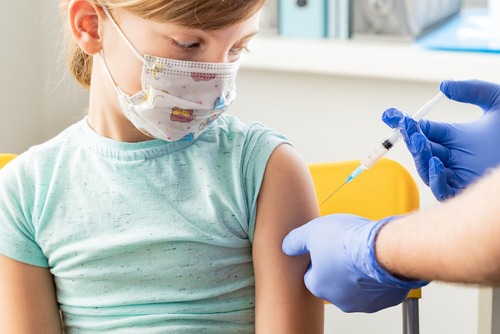
Moderna announced Tuesday that it has started its study of the COVID-19 vaccine in children.
Called the KidCOVE study, Moderna began Phase 2/3 of its study by administering the vaccine in children from 6 months to less than 12 years of age. The study is being done in collaboration with the National Institute of Allergy and Infectious Diseases (NIAID), part of the National Institutes of Health (NIH) and the Biomedical Advanced Research and Development Authority (BARDA), part of the Office of the Assistant Secretary for Preparedness and Response at the U.S. Department of Health and Human Services.
“We are pleased to begin this Phase 2/3 study of mRNA-1273 in healthy children in the U.S. and Canada, and we thank NIAID and BARDA for their collaboration,” said Stéphane Bancel, Chief Executive Officer of Moderna. “It is humbling to know that 53 million doses have been administered to people in the U.S. We are encouraged by the primary analysis of the Phase 3 COVE study of mRNA-1273 in adults ages 18 and above, and this pediatric study will help us assess the potential safety and immunogenicity of our COVID-19 vaccine candidate in this important younger age population.”
In the first part of the study, researchers will look at the safety, tolerability, reactogenicity, and effectiveness of Moderna’s two-dose vaccine. The company said it hopes to enroll approximately 6,750 pediatric participants in the study. Participants will receive one of two dose levels (50 μg or 100 μg), with participants aged 6 months to less than 2 years old getting one of three dose levels (25 μg, 50 μg, and 100 μg). In the second part of the study, the analysis will center around a placebo-controlled expansion.
Participants will be followed for a year after the second vaccination, the company said, to evaluate the vaccine’s safety and reactogenicity.




